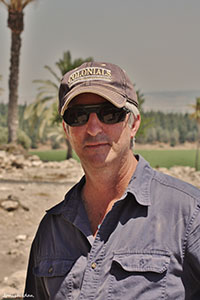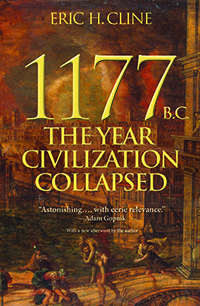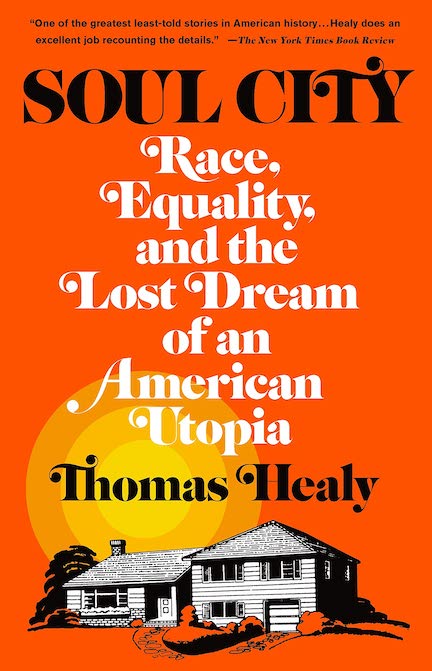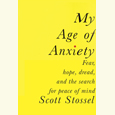History’s Mysteries
Why did so many ancient civilizations collapse at the same time? Eric H. Cline explains
From the fifteenth through the thirteenth centuries B.C., a number of civilizations—including the Egyptians, Canaanites, Assyrians, Cypriots, Mycenaeans, Minoans, and Hittites—flourished along the coastlines of the eastern Mediterranean and Aegean seas. Sometime around 1177 B.C., many cities collapsed, and civilizations in the region disappeared or declined. What happened? Some have attributed this decay to mysterious invaders known as the “Sea Peoples.” In his engaging history, 1177 B.C.: The Year Civilization Collapsed, Eric H. Cline sifts through all the evidence and offers a more convincing explanation.
 Cline is the Director of the Capitol Archaeological Institute at George Washington University. The recipient of multiple prizes for both his research and teaching, he has decades of archaeological field experience and writes compelling books about ancient history. 1177 B.C. was named one of the best books of 2014 by the New York Post and The Australian and received the first ever “Best Popular Book Award” from the American Schools of Oriental Research.
Cline is the Director of the Capitol Archaeological Institute at George Washington University. The recipient of multiple prizes for both his research and teaching, he has decades of archaeological field experience and writes compelling books about ancient history. 1177 B.C. was named one of the best books of 2014 by the New York Post and The Australian and received the first ever “Best Popular Book Award” from the American Schools of Oriental Research.
Prior to his forthcoming appearance in Memphis, Cline recently answered questions via email for Chapter 16:
Chapter 16: The early chapters of your book paint the centuries before the collapse of the Bronze Age as a dynamic time, rich with international trade, political intrigue, and diverse civilizations. What accounts for this vibrancy?
Eric H. Cline: The civilizations in these regions had reached a fairly advanced level by the time of the Late Bronze Age. Remember that some of them, such as the Egyptians, had already been around for 1,500 years by the time the Late Bronze Age began. Others, such as the Minoans, Mycenaeans, and Hittites, had established themselves as powers in the region earlier in the second millennium B.C., so that by the last three centuries of the Bronze Age, they were quite sophisticated in terms of architecture, writing, painting, international trade, diplomacy, economics, and so on.
Chapter 16: At one point you analyze two of the most famous events of the thirteenth century B.C.: the Trojan War and the Exodus of the Hebrews from Egypt. What do we actually know about these events, and how do they reflect upon your larger story?
Cline: Both events remain somewhat legendary, shall we say, but the Exodus more so than the Trojan War, to a certain extent. There is not yet any archaeological evidence indicating that the Exodus was a real event and actually took place. That doesn’t mean that it didn’t happen; it only means that we haven’t found evidence of it yet.
 The Trojan War is a bit different, however, for here we have both too much and yet not enough evidence, all at the same time. The Greek written records—such as the Epic Cycle, as well as Homer—indicate that there were actually several expeditions by the Mycenaeans against Troy, not just one. Similarly, the Hittite texts indicate that there were a number of wars in the region of Troy during the Late Bronze Age, not just one. And the site of Troy itself has nine cities built one on top of another, covering the period from about 3,000 B.C. until the Roman period. More than one of these was destroyed, so the question is actually not about whether there was a Trojan War, for there were several. Rather, which one was Homer talking about? Regardless, both the Exodus and the Trojan War are merely pieces in the larger picture, though they may be representative of the rather hectic nature of the final decades or century of this period, as the traditional world order began collapsing at the end of the Late Bronze Age.
The Trojan War is a bit different, however, for here we have both too much and yet not enough evidence, all at the same time. The Greek written records—such as the Epic Cycle, as well as Homer—indicate that there were actually several expeditions by the Mycenaeans against Troy, not just one. Similarly, the Hittite texts indicate that there were a number of wars in the region of Troy during the Late Bronze Age, not just one. And the site of Troy itself has nine cities built one on top of another, covering the period from about 3,000 B.C. until the Roman period. More than one of these was destroyed, so the question is actually not about whether there was a Trojan War, for there were several. Rather, which one was Homer talking about? Regardless, both the Exodus and the Trojan War are merely pieces in the larger picture, though they may be representative of the rather hectic nature of the final decades or century of this period, as the traditional world order began collapsing at the end of the Late Bronze Age.
Chapter 16: You make some wide claims about the past based on the available fragments of evidence—a list of names at the base of an Egyptian statue, for instance, or a cache of raw metal in a shipwreck off the coast of Turkey. Does the limited evidence frustrate you, or is it part of what makes ancient history rewarding?
Cline: The limited evidence is what makes studying ancient history, and archaeology for that matter, so rewarding, not frustrating. It’s like a big scholarly detective story or mystery that needs to be solved, with clues that are either limited or missing completely yet always with the chance that a new piece will be found, which can help to fill in a blank area or answer a long-standing question. When you have an “Aha!” moment, and figure something out that you just know intuitively is correct, it is so rewarding—there’s nothing like that feeling!
Chapter 16: Let’s get to the big question: what the heck happened to all these civilizations around 1177 B.C.? You suggest a more complicated tale than the prevalent explanations.
Cline: Very simply, these civilizations all collapsed around 1177 B.C. Why they collapsed is the big mystery. If we can answer that, we’ll get the $64,000 prize. I do think that the answer is more complicated than previous scholars have suggested because it can be shown that a number of different factors were involved—including climate change, drought, famine, earthquakes, invaders, and revolts. Usually human civilizations can endure and overcome these if they arise one at a time, but I think the answer lies in the fact that, this time, these calamities didn’t come one-by-one. They overlapped each other, and thus the effects of each were magnified, so that the civilizations suffered “the slings and arrows of outrageous fortune,” if I may quote Shakespeare in such a context.
Chapter 16: Much of ancient history is written in a technical manner and geared to fellow scholars. Your recent books, including 1177 B.C., are short and accessible to a wider public. What guides your choices as an author? What are your goals as a historian?
Cline: In writing for a wider audience, I am usually guided by my own interests. My tastes are mundane enough that if I find something fascinating, chances are that others will find it fascinating as well. Thus, while I like the finer points of ancient pottery and stratigraphy as much as the next archaeologist, and I publish my fair share of esoteric and jargon-laden articles in scholarly journals, I also revel in more basic things like the discoveries of Troy, and King Tut, and Pompeii. I like telling those stories and making the past come alive for people, whether it’s the students in my introductory classes or a larger general readership. As an archaeologist and an ancient historian, I feel that it is part of my job to write for the general public as well as for my colleagues, and that includes debunking some of the crazy stories and pseudo-archaeology that we see on TV shows, like “Ancient Aliens,” or that make the evening news when it’s reported that somebody has discovered Noah’s Ark yet again, which they do almost every year.
Chapter 16: “We should not think that our current world is invulnerable,” you write, “for we are in fact more susceptible than we might wish to think.” When you take the long view, civilizations collapse all the time. So what can we learn from ancient history? Can we prevent a similar confluence of calamities in the modern world?
Cline: As I have said elsewhere, the fact that intertwined civilizations collapsed just after 1200 B.C. should be a warning to us; if it happened once, it can certainly happen again, even if we are now much more technologically advanced than they were back then. History has a lot to teach us, if we are only willing to listen and learn.
I don’t mean to say that history repeats itself, since I’m pretty sure that it really doesn’t, but at the very least we should be aware that no society is invulnerable and that every society in the history of the world has ultimately collapsed. We should also be thankful that we are advanced enough now to understand what is happening, in terms of things like climate change, for example, and can take steps to fix things, rather than simply passively accepting things as they occur, like the ancient Hittites had to do.

Aram Goudsouzian chairs the history department at the University of Memphis. His most recent book is Down to the Crossroads: Civil Rights, Black Power, and the Meredith March Against Fear.





